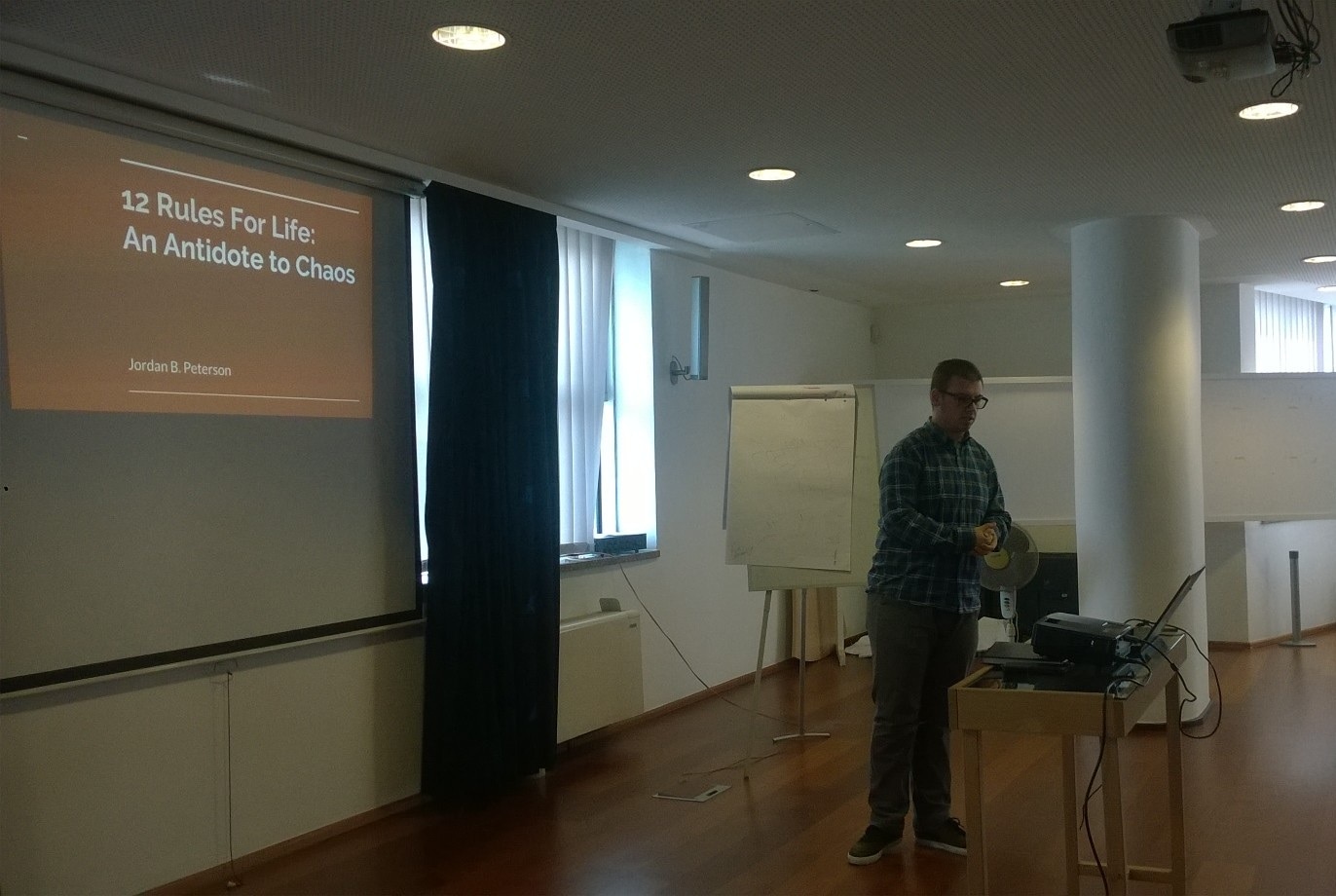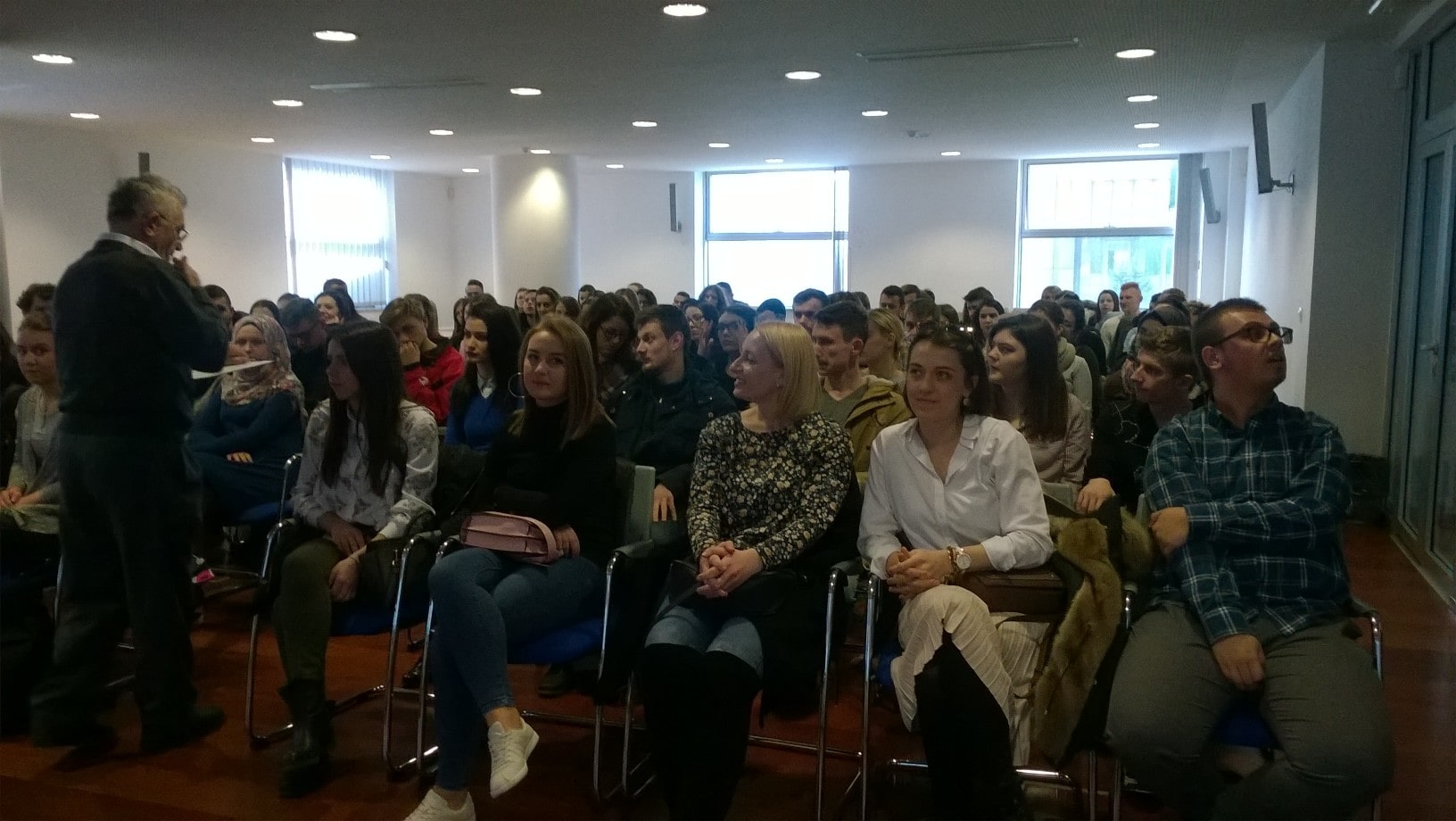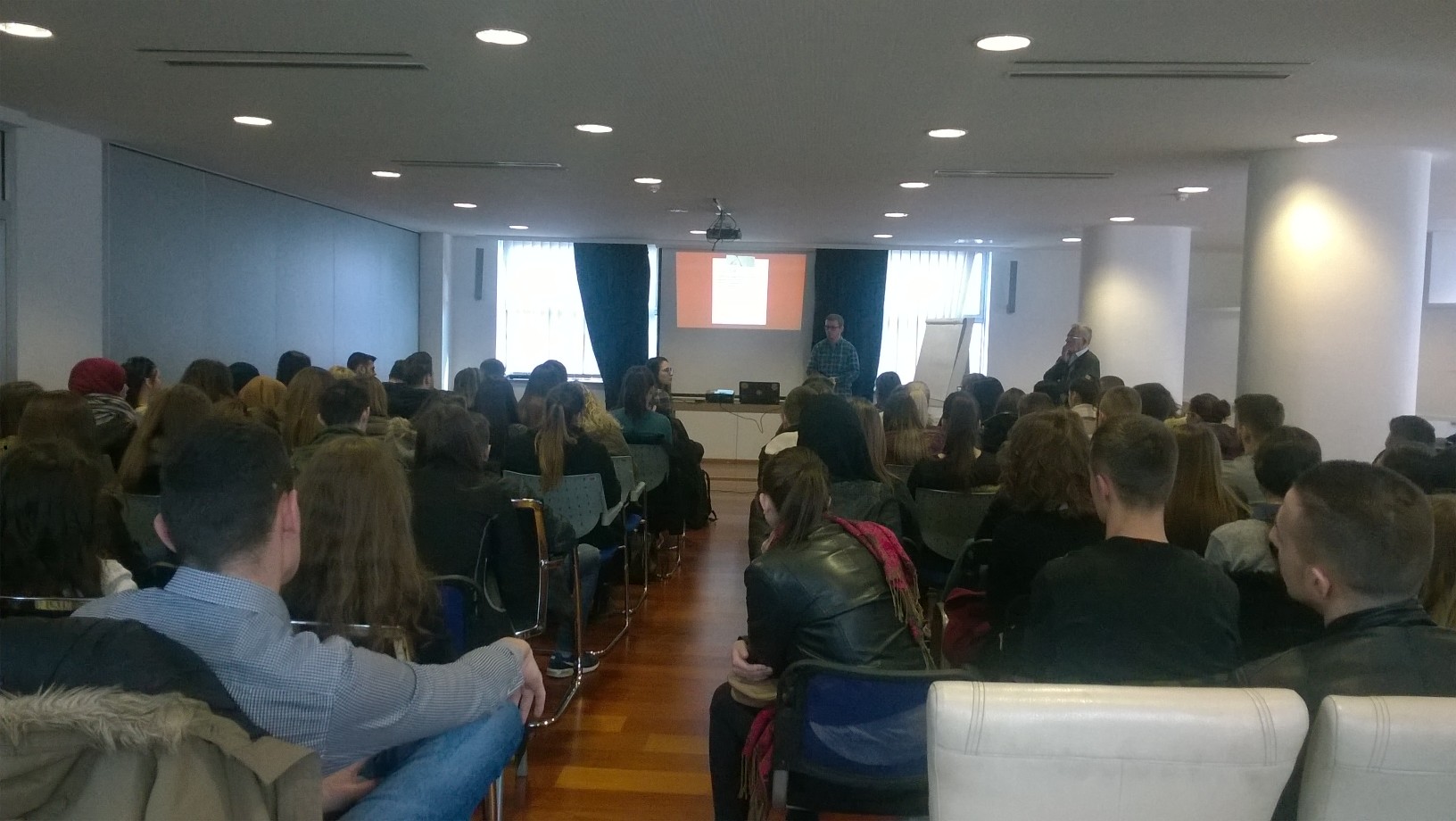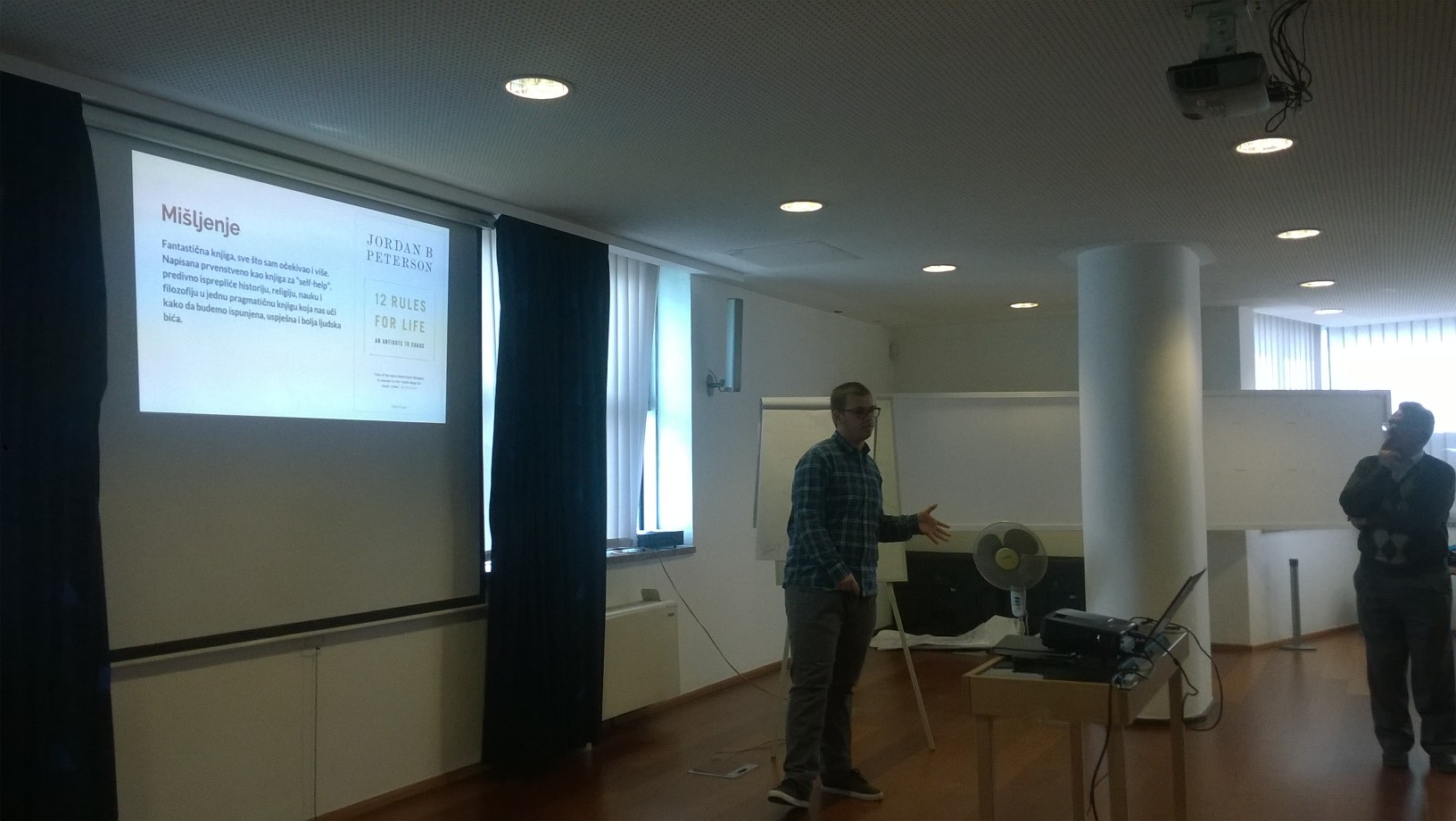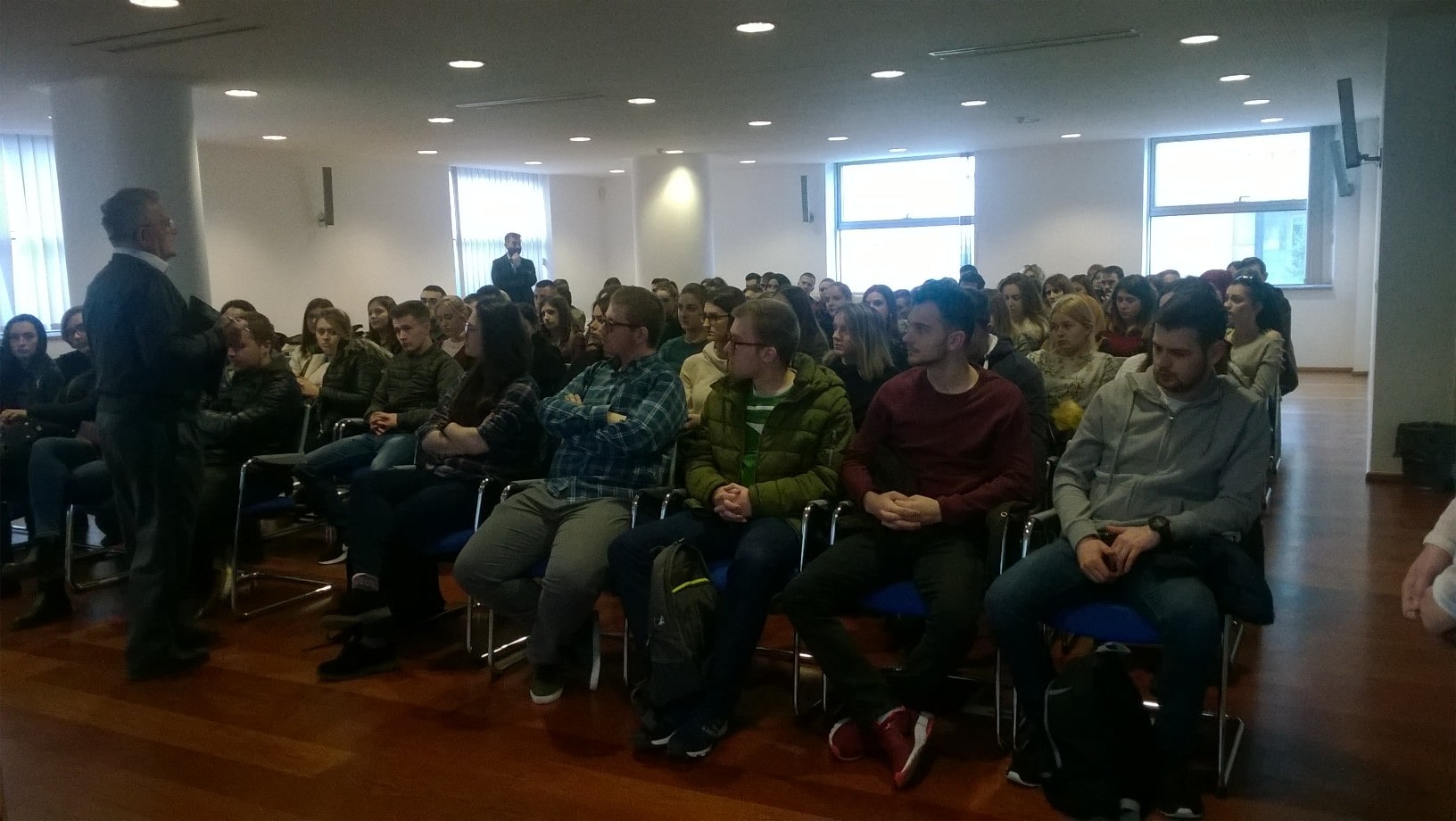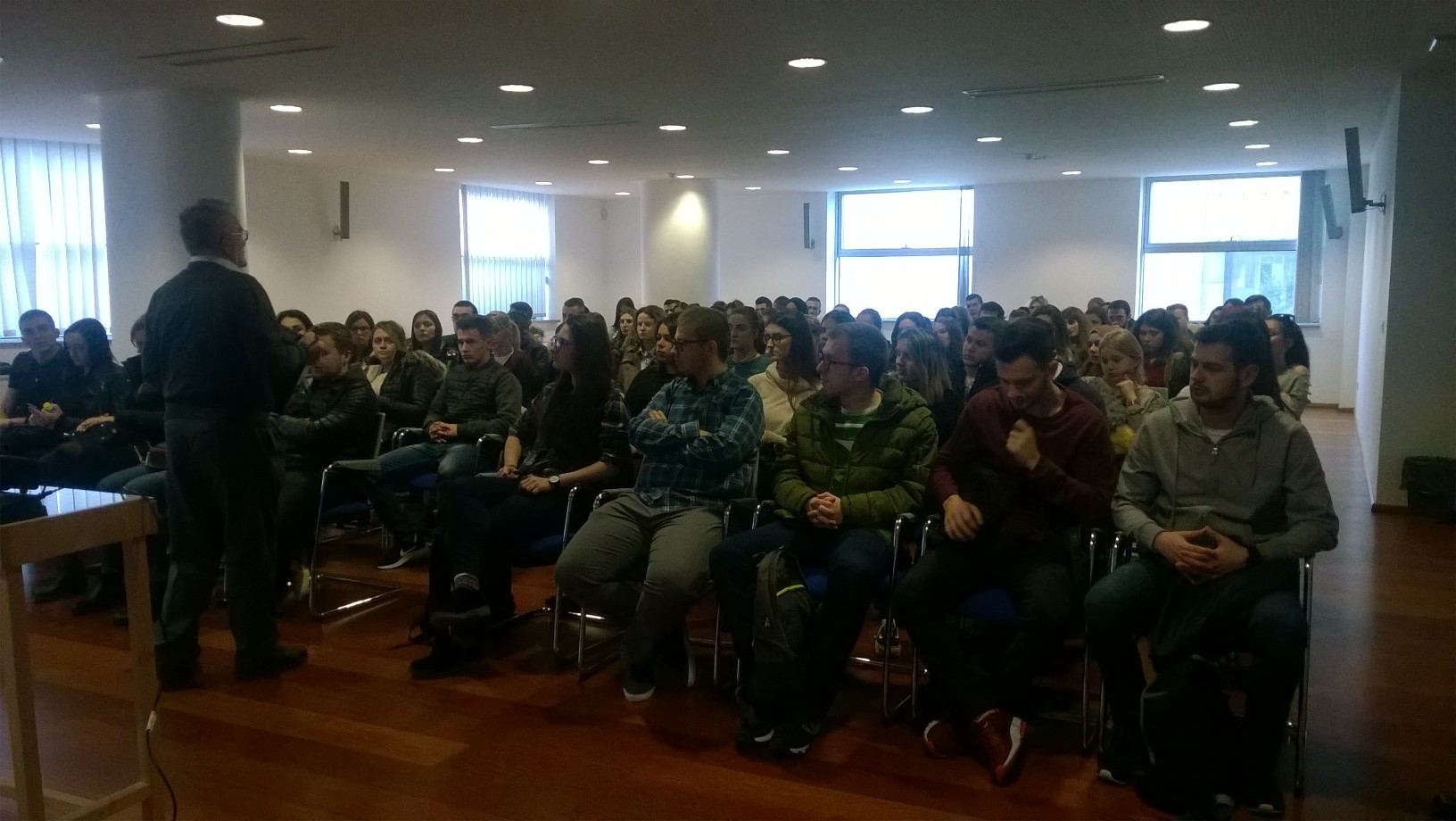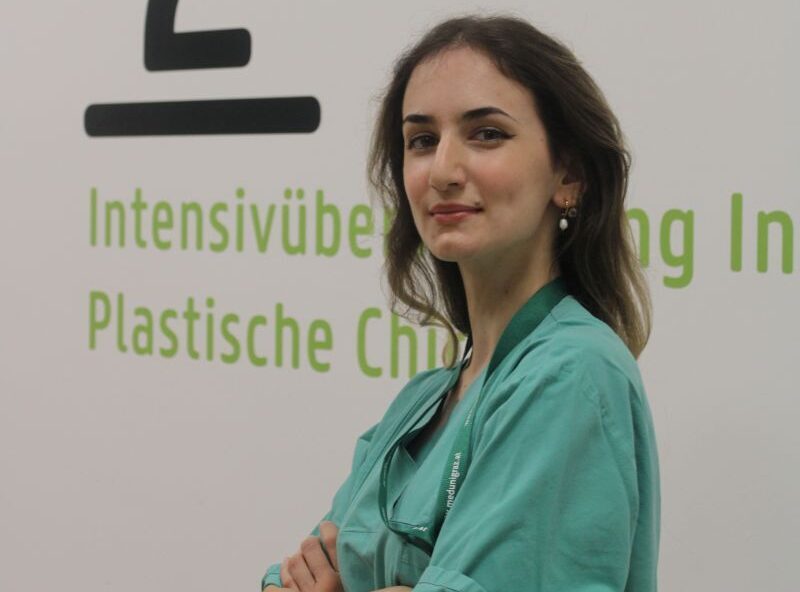On Saturday, 10th of March 2018, a traditional monthly meeting of the Hastor Foundation’s scholarship holders took place in ASA Group’s Main Assembly Hall. What made this month’s meeting particularly noteworthy was an inspirational lecture delivered by Haris Muhibic, Foundation’s scholarship holder and a second year student at the Faculty of Engineering and Natural Sciences, Department of Information Technologies.
Prompted by Twelve Rules for Life: An Antidote to Chaos, a book written by a Canadian professor and psychologist Jordan B. Peterson, Haris decided to selflessly share the valuable experience he gained while reading it with other scholarship holders. The book addresses and deals with essential life principles that every ambitious young person should follow so as to feel content and fulfilled while working on something he or she loves. In addition, living in accordance with these principles fuels a person’s desire for success and improvement.
The focus of the lecture was the book’s twelve rules for improving one’s life quality – we should adhere to these golden rules in everyday situations because by doing so we will experience fulfillment and be content with ourselves and people around us. Haris emphasized the message that nothing in life is absolute and that there is a need to seek balance in everything we do. Scholarship holders discussed the following principles in particular: face life’s problems directly and always walk with your head held high; pay attention to yourselves the same way you would to those in need of help; nurture friendships with people who truly care about you rather than with toxic, envious people; compare yourself only with your former self, not with others; sweep around your own front door before you try to sweep around others’ doors; strive for higher, long-term goals; aim to always speak the truth; recognize that every new person you meet can potentially teach you something new. In addition to these principles, it is crucial to surround ourselves with good people who will acknowledge our aspirations and efforts. We need to become aware of the fact that we are makers of our own destinies, and that each good dead of today makes us a better person than we were yesterday.
Scholarship holders did not hide their enthusiasm about Haris’s interactive lecture and praised his topic selection, but even more so his earnest treatment of it and his general approach. Smiling faces and positive comments of the scholarship holders were more than enough to conclude that the primary goal of Haris’s lecture was fulfilled – his words reached the scholarship holders and inspired them to rethink their habits and recognize that small changes pave way for profound ones which result in a better and happier self, which can then influence person’s immediate surroundings, and eventually lead to a better and happier life. What both the audience and the lecturer agreed on is that productive and inspirational conversations and discussions are truly necessary for young people, because demotivating stories are often foregrounded and often contribute to an inner state of inertia and indifference.
Haris wrapped up the lecture by emphasizing the following once more: Always walk with your head held high. Sweep around your own front door (focus on your personal improvement, not on other people). Give your attention to whomever you meet on your path, be it a cat whose back you will stroke. Move forward and treat every difficulty and obstacle as a challenge to be solved step by step, with persistence.
Finally, small things in life are all too often neglected and ignored, and yet they should be our focus. They are what truly matters and what affects our mental health, our drive and will to succeed, and our accomplishments.
Amina Vatreš
